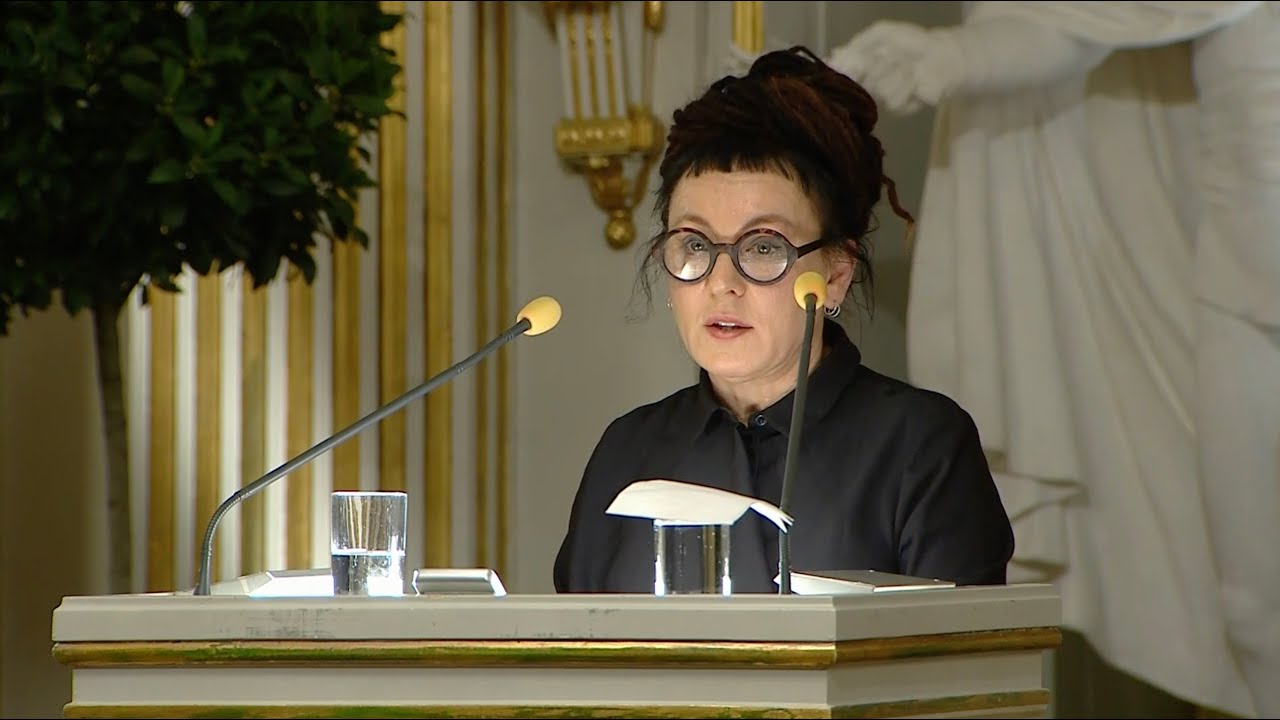Primeval and Other Times (Polish: Prawiek i inne czasy) is a novel by Olga Tokarczuk, published in 1996. It is considered one of her most important works. The novel is a multi-layered story exploring themes of time, mythology, and the human condition. It is set in the fictional village of Primeval, located in Poland.
The novel is structured unconventionally. It is not a traditional narrative with a linear plot. Instead, it is divided into chapters named after different archangels. These archangels oversee and influence the events in Primeval. Each archangel represents a different aspect of existence, such as Raphael (healing), Michael (protection), and Gabriel (communication). This structure allows Tokarczuk to explore the same events from multiple perspectives.
Primeval itself is more than just a location. It becomes a microcosm of the world. The village is surrounded by forests and marshes. These landscapes are as important as the characters in the novel. They reflect the changing fortunes of the people who live there. The village experiences wars, political upheavals, and social changes. All these events shape the lives of its inhabitants.
Key Characters
The novel features a cast of memorable characters. Their lives are intertwined with the history of Primeval. Each character embodies different aspects of human nature. They grapple with universal themes like love, loss, and the search for meaning.
Misia
Misia is one of the central characters. She represents the cyclical nature of life and death. Her experiences are closely tied to the land and the seasons. Misia's story explores themes of motherhood, survival, and connection to nature. She is a strong and resilient figure who endures many hardships.
Pawel
Pawel is Misia's husband. He is a complex character who struggles with his inner demons. He embodies the destructive forces that can disrupt the harmony of Primeval. Pawel's story touches on themes of guilt, redemption, and the impact of war on the human psyche. He represents the darker aspects of human nature.
Izydor
Izydor is a Jew who finds refuge in Primeval. His presence highlights the themes of displacement and persecution. Izydor's story explores the importance of tolerance and the consequences of prejudice. He represents the vulnerability of marginalized communities during times of conflict. He brings a different perspective to the village.
Themes
Primeval and Other Times delves into several important themes. These themes resonate with readers and contribute to the novel's enduring appeal. The exploration of these themes is complex and multi-faceted.
Time
Time is a central theme in the novel. Tokarczuk challenges the linear perception of time. She presents it as a fluid and cyclical force. The past, present, and future are interconnected in Primeval. The archangels, who oversee the events, exist outside of linear time. This allows the author to play with perspective.
Mythology and Folklore
The novel is rich in mythological and folkloric elements. These elements add depth and meaning to the narrative. The archangels act as mythological figures who influence the events in Primeval. The use of folklore creates a sense of timelessness and connects the story to the traditions of the region.
The Human Condition
Primeval and Other Times explores the complexities of the human condition. The characters grapple with fundamental questions about life, death, and the search for meaning. The novel examines the themes of love, loss, and the struggle for survival. It also portrays the human capacity for both good and evil.
The Power of Place
The setting of Primeval is not merely a backdrop. It is an active participant in the story. The landscape shapes the lives of the characters and reflects their emotional states. The forests, marshes, and fields of Primeval symbolize the natural world. Nature's power influences everything.
Significance
Primeval and Other Times is a significant work of contemporary literature. It has been translated into many languages and has received critical acclaim. The novel is admired for its innovative structure, its rich symbolism, and its profound exploration of universal themes. It is considered a modern classic. The book cemented Tokarczuk's reputation as one of Poland's most important writers. Her other works often share similar themes and stylistic approaches.
The novel's impact extends beyond the literary world. It has influenced discussions about Polish identity and history. Tokarczuk challenges traditional narratives and offers a nuanced perspective on the past. Her work encourages readers to question conventional wisdom. Her storytelling has a profound impact on the literary landscape.
In conclusion, Primeval and Other Times is a complex and rewarding novel. It offers a unique perspective on time, mythology, and the human condition. Through the story of Primeval and its inhabitants, Tokarczuk invites readers to reflect on the enduring questions of existence. The novel's innovative structure and rich symbolism make it a truly unforgettable reading experience. Readers are encouraged to explore this captivating work and discover its many layers of meaning.

